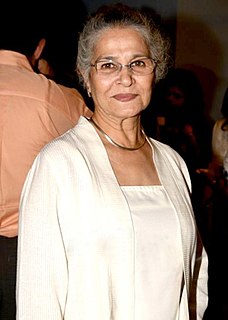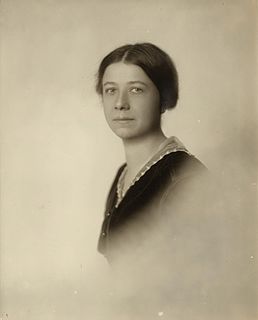A Quote by Rebecca Traister
Since the late 19th century, the median age of first marriage for women had fluctuated between 20 and 22. This had been the shape, pattern and definition of female life.
Related Quotes
The 19th century Mormons, including some of my ancestors, were not eager to practice plural marriage. They followed the example of Brigham Young, who expressed his profound negative feelings when he first had this principle revealed to him. The Mormons of the 19th century who practiced plural marriage, male and female, did so because they felt it was a duty put upon them by God.
Atul had a child from his first marriage but lost him when he was just 16 years old. His wife died 7-8 years later. He's really had a tough life. Probably these experiences have made him a more sensitive, caring and loving person... Had we been 20 years younger, we definitely would have had children.
One [paradox] is that pornography follows in that wake of women's liberation. The first instances of hard-core pornography were in late 18th-century in France, "the Golden Age of Women." The next wave in the 20th century comes from Sweden, one of the first countries where women voted. Then Germany, again, at the forefront of progress. Then America in the '80s, when women were closing the pay gap. And Japan, same thing.
All of women's stories in the 19th century had either one of two endings: you either had the good Jane Austen marriage at the end and you were happy; or you had the terrible Henry James savage downfall because of your own hubris as a woman, or you've made some great error leading you down a path to ruin. One is the story of love that's successful and the other is the story usually of reckless love that goes terribly wrong that destroys the woman.
Despite the modern dogma to the effect that women were a subject sex until the nineteenth century 'emancipated' them from history, women in history had demonstrated strong wills and purposes, had made assertions, and had directed or influenced all human destiny, including their own, since human life began.
In the beginning of the 19th century, maybe forty percent of women and fifty percent of men could produce a signature, which meant that they'd had at least three years of education because it was in third grade that people started penmanship in the 19th century. And of course black people could get killed if they got caught teaching themselves to read in some parts of the country.
In the 20th century, we had a century where at the beginning of the century, most of the world was agricultural and industry was very primitive. At the end of that century, we had men in orbit, we had been to the moon, we had people with cell phones and colour televisions and the Internet and amazing medical technology of all kinds.


































